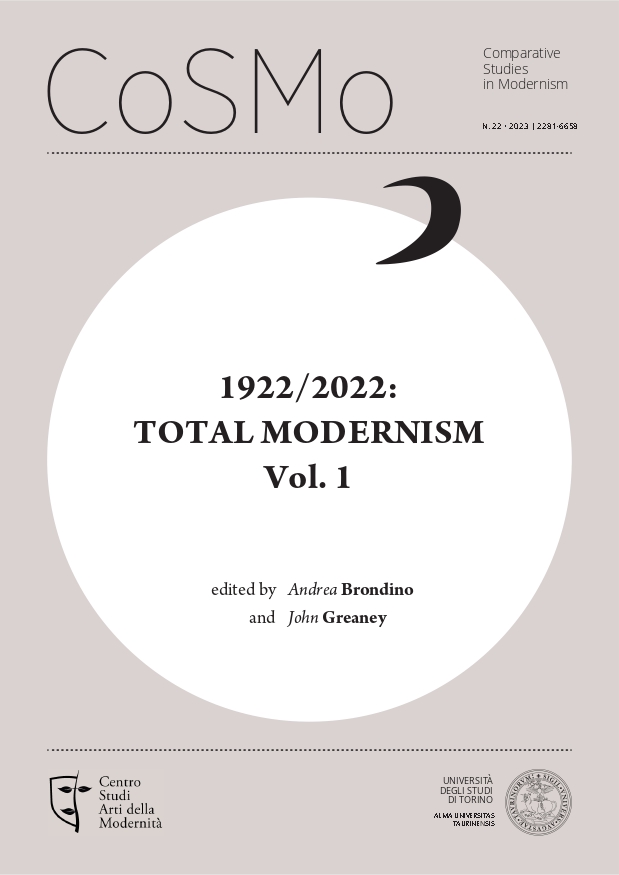Seeking the Universal amid Ruins
Walter Benjamin’s 1922 “Angelus Novus” Journal Announcement 100 Years Later
DOI:
https://doi.org/10.13135/2281-6658/7809Keywords:
Walter Benjamin, Angelus Novus, Total Modernism, 1922, Philosophy of Editing, Critical Theory, Comparative LiteratureAbstract
This paper revisits Walter Benjamin’s unpublished “Announcement of the Journal Angelus Novus,” one of relatively few texts Benjamin is known to have written in 1922, European modernism’s widely recognized annus mirabilis. The announcement followed numerous, transformative essays and fragments of 1921 and was written alongside his dissertation on The Concept of Criticism in German Romanticism, encompassing a pivotal moment in Benjamin’s philosophical maturation. Heralding the new, never realized journal, the announcement articulates what might be deemed “the task of the editor,” which it describes as a quest for “philosophical universality”. The Angelus Novus journal would proceed form the fact of modern social discontinuities toward the elaboration of universal philosophical truths through the criticism of literary works. This paper reconsiders Benjamin’s editorial ambitions as part of his individual philosophical development and within a broader context of “total modernism,” discussing the announcement’s continued relevance for our contemporary world.
Downloads
Downloads
Published
Issue
Section
License
Authors keep the copyrights for their work and give the journal the work’s first publication copyright, which is at the same time licensed under a Creative Commons License – Attribution, which in turn allows other parties to share the work with an acknowledgement of the work's authorship and initial publication in this journal.
Content Licence

You are free to copy, distribute and transmit the work, and to adapt the work. You must attribute the work in the manner specified by the author or licensor (but not in any way that suggests that they endorse you or your use of the work).
Metadata licence

CoSMo published articles metadata are dedicated to the public domain by waiving all publisher's rights to the work worldwide under copyright law, including all related and neighboring rights, to the extent allowed by law.
You can copy, modify, distribute and perform the work, even for commercial purposes, all without asking permission.





